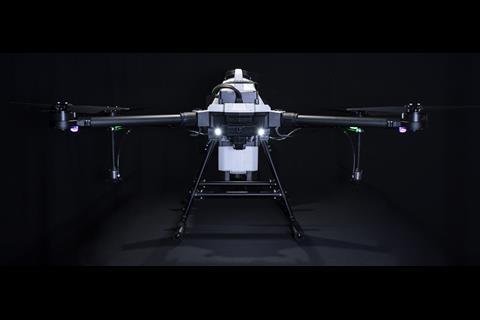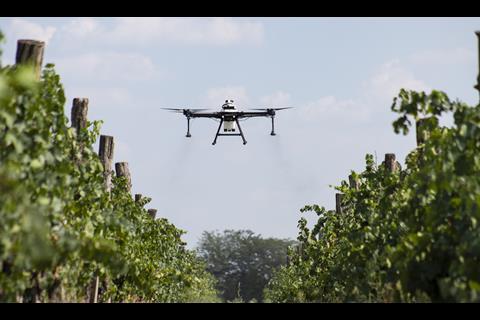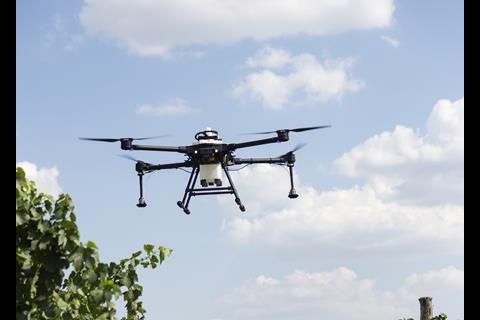Hungarian agtech firm “poised to enter” UK market with precise spraying drones designed to reduce inputs and alleviate workforce pressures
Hungary-based drone specialist ABZ Innovation is targeting the UK market with its precision spraying drones by highlighting their potential to reduce input costs and alleviate worker shortages.
The drones were developed and tested together with the University of Gyor in north-western Hungary, and ABZ said it is “readying their introduction into the UK market” following success in other five other European countries.
According to the recently appointed company CEO Karoly Ludvigh, the ABZ drone system offers a “lower-cost, highly efficient means of spraying fields and orchards” that makes it easier to spray hard-to-access areas.
He added that the “pinpoint accuracy” of spraying with ABZ drones – which are accurate to within 2-3cm – can be a valuable asset in keeping down input and water costs.
Ludvigh stressed the potential cost savings associated with drone spraying, citing research by the University of Gyor which shows it requires 90 per cent less water than conventional spraying and up to 50 per cent fewer chemicals.
In the case of the UK, ABZ also wants to appeal to growers hit hard by post-Brexit labour shortages. According to the NFU, some £60m of fresh produce was left to rot in the fields in 2022 due to a lack of workers.
ABZ said it was poised to enter “a large and relatively untapped market” thanks to post-Brexit rules allowing drones to spray crops.
According to the UK’s Health and Safety Executive (HSE), “current regulations do not prevent drone spraying”, however a permit is required and the HSE needs to be satisfied that spraying can be done without causing harm to human health or having “unacceptable effects” on the environment.
Ludvigh said: “With the problems with the lack of workforce in crops and orchards in the UK, drones can provide a very cost-effective alternative. They also have the benefit of helping growers use significantly less water and chemicals.
“Proper soil and crop management has become paramount to really provide our plants with the kind of soil they require to withstand weather conditions as well as possible.”
According to the drone specialist, technology in the sector “has been accelerating at an incredible rate, with as many changes in the 12 months of 2022 as in the previous six years put together”.
“The pace of these changes has been amazingly fast and I think it will get even faster,” he added.
The company’s current drones have been launched as part of a five-year development plan, and in 2024 the business will introduce two new sizes of drone, with a 30 and 50 litre capacity respectively. Both machines come with a fertiliser and seed spreader option.
“Within the next five years, we are aiming to bring to market a drone for agriculture capable of flying in the most difficult conditions without the aid of a remote pilot, such as orchards or steep vineyard terraces,” said Ludvigh.
“Realising this development will, I believe, help take drones for agriculture to a global level, with the potential for reaching growers and farmers in Africa, the Americas, the Middle East, and beyond.”






